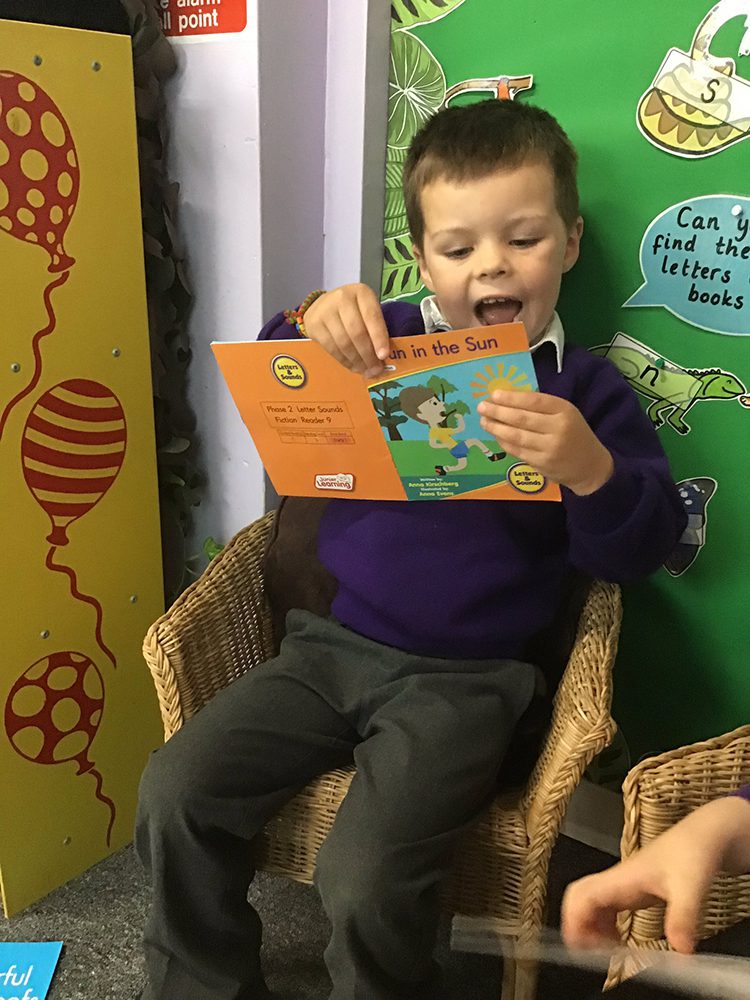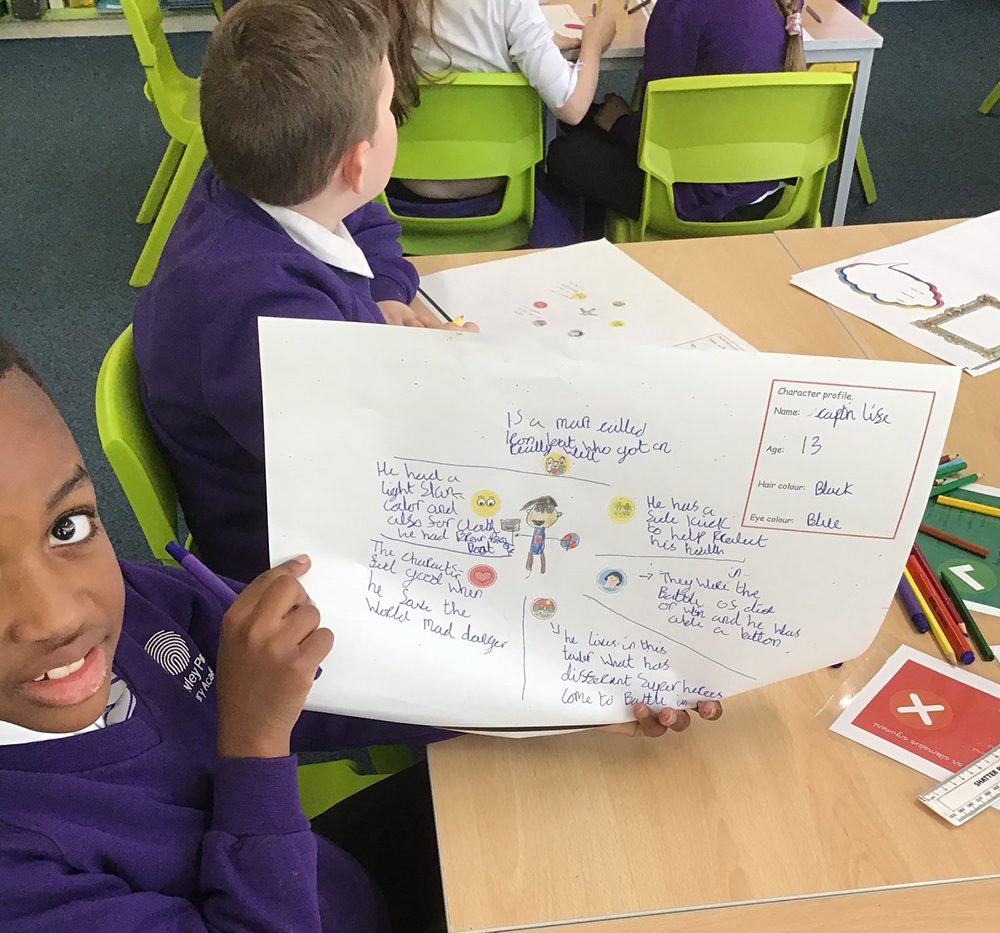English skills at Rowley Park Academy are taught through the two main areas – Reading (the skill of reading and instilling a love of reading) and Writing.
We use the National Curriculum programme of study to guide our teaching of skills and knowledge within our English lessons as well as our SPAG (Spelling, Punctuation and Grammar) progression grid which you will find below:
English Skills Progression Document
Reading
At Rowley Park, we know that for a child to make sense of a text and to infer information from it they need to experience a rich diet of reading materials, have appropriate background knowledge, and to understand the key information being conveyed. Through close reading, rich and meaningful discussion, and vocabulary exploration, children are taught to unpick high-quality or challenging texts whether reading 1-1 with an adult, peer reading or completing reading lessons.
To strengthen comprehension skills, children participate in Book Talk sessions based on the work of Jane Considine. These sessions are designed to support children in becoming deeper thinkers and help them organise their ideas, thoughts and opinions about texts as well as be able to read for meaning by retrieving information and making inferences about the text.
Developing a love of reading is essential to becoming a strong, independent reader and so it is one of our key priorities. We achieve this in a number of ways, which include:
- Two school libraries
- Being read to regularly
- Termly library trips to the community library
- Class reading areas
- Class texts linked to thematic topics so children have a range of books to choose from based on current interests
- Visiting authors and poets
- Dedicated reading for pleasure sessions

Writing
At Rowley Park Academy we view writing as a life skill and a tool to aid effective communication and reflection. At our school children are taught daily English lessons that give the children opportunities to:
- Write toward purposeful genre outcomes linked to their NICER challenge packs (set in 2 weekly cycles).
- Evaluate WAGOLL texts (what a good one looks like) to identify good practice and evaluate the impact of an author’s choices of vocabulary, structure and intent.
- Engage in purposeful SPAG activities linked to the genre of writing.
- Learn to plan, draft, revise and edit enabling them to have deep, reflective conversations about the content of their work.
- Assess how effectively their work achieves the intended impact

All of this is underpinned by an understanding of purpose and audience, opportunities for speaking and listening, and grammar taught in context. What results from this is purposeful writing that pupils can be proud of. Teachers use a range of strategies to enable the children to be the best writers they can be, these include: WAGOLLS, thinking hats, thinking frames, critique feedback, Not yets as well as strategies based on Jane Considine’s The Write Stuff.
Handwriting
We teach handwriting using the Letter Join handwriting scheme. This is designed to ensure progression across the school, beginning in Reception with simple mark making before advancing to basic letter formation, and moving on to fluent cursive handwriting. The principles of successful handwriting are taught explicitly (how to hold a pencil, how to sit, how to warm up, joins, etc) and used across the curriculum.
